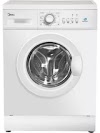Dyson has announced that it's building its own Electric Vehicle manufacturing plant in Singapore. While the manufacturing facility is said to be ready by 2020, company's 400 team members are developing the vehicle itself on Dyson’s Campus at Hullavington Airfield, UK and the EV is slated to be unveiled in 2021.
Read the complete press release below
Today, Dyson confirmed that its Board has ratified a decision to construct its first advanced automotive manufacturing facility in Singapore. The bespoke two-storey manufacturing facility is scheduled for completion in 2020.
The project demonstrates the international nature of Dyson’s operations. Earlier this year Dyson announced it was in the process of investing £200m in new buildings and testing facilities at its campus at Hullavington Airfield, UK. It continues its £2.5bn investment in new technology globally.
Writing to Dyson staff, Jim Rowan, CEO of Dyson said,
Dyson’s growing automotive team is making excellent progress from the state-of-the-art hangars at Hullavington Airfield in Wiltshire where we are investing £200m. Clearly we now need to move quickly towards manufacturing and assembly.
The decision of where to make our car is complex, based on supply chains, access to markets, and the availability of the expertise that will help us achieve our ambitions. I am delighted to let you know that the Dyson Board has now decided that our first automotive manufacturing facility will be in Singapore. We will begin construction in December and it will be completed in 2020, meeting our project timeline.
Our existing footprint and team in Singapore, combined with the nation’s significant advanced manufacturing expertise, made it a frontrunner. Singapore also offers access to high-growth markets as well as an extensive supply chain and a highly skilled workforce. Singapore has a comparatively high cost base, but also great technology expertise and focus. It is therefore the right place to make high quality technology loaded machines, and the right place to make our electric vehicle.
Dyson’s history in Singapore began 11 years ago with a small engineering team developing our high speed, digital, electric motors. We have grown significantly since then, we now employ 1,100 people, and have made over fifty million high-speed Dyson Digital Motors in Singapore.
Our RDD teams at both the Singapore Technology Centre and the Advanced Manufacturing Centre have developed world-leading knowledge and represent Dyson at its best. Singapore is central to our future and we expect to more than double our team there.
Dyson is truly global in its development, delivery and realisation of technology. This decision is good news for the exceptional teams we have in both the UK and Singapore. It is a fast-moving, exciting, and pivotal project for Dyson; thank you for all you are doing to help us realise our ambitions.
Jim..
Dyson in the UK
Total UK headcount has increased 2.5 times over the last five years to 4,800. The iconic former Ministry of Defence airfield at Hullavington already employs a team of 400 and represents a £200m expansion.
The Campus at Hullavington is located close to Dyson’s Malmesbury campus where Dyson employs over 4,000 Dyson people, including the Dyson Institute of Engineering and Technology. Through The Dyson Institute, Dyson is making a £31m investment into higher education to help overcome the shortage of engineers in the UK. The four year degree programme, free of tuition fees, covers the fundamentals of engineering in years one and two. It delivers electronics and mechanical engineering content in years three and four – all alongside a paid job as part of Dyson’s research and development team, working on real products, with leading engineers and scientists.
Dyson in Singapore
Dyson currently employs 1,100 people in Singapore across its new Singapore Technology Centre at Science Park One and its Advanced Manufacturing Centre at West Park where it manufactures 21m motors a year on autonomous production lines. Dyson draws on Singapore’s pool of highly skilled engineers and scientists, developing Dyson’s latest technologies as well as core robotic and software expertise.
The production manufacturing facility will build on Dyson’s existing advanced motor and battery expertise in Singapore and draw on the nation’s expertise in Research & Development, advanced manufacturing, automation and access to supply chains. The location was chosen due to:
- Proximity and access to high-growth markets.
- Ready access to a supply chain of advanced materials and components.
- Availability of highly-skilled engineers and scientists
- Advanced manufacturing capability.







0 Comments